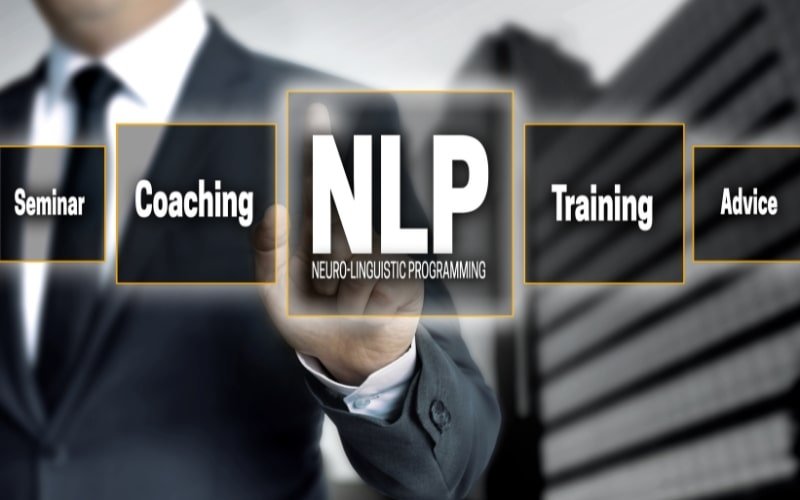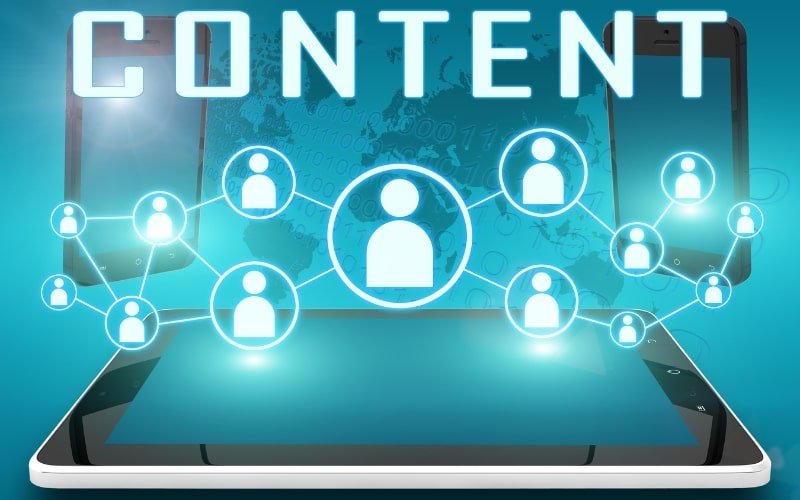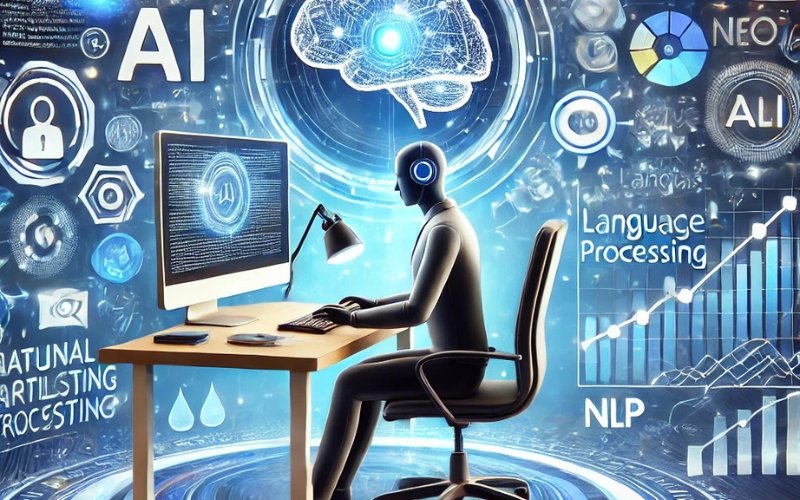Artificial Intelligence (AI) has been making waves across multiple industries, and its impact on content creation and optimization is nothing short of revolutionary. As businesses strive to create high-quality, SEO-optimized content that resonates with their audience, AI-powered tools are stepping in to transform how content is crafted, analyzed, and tailored for the best results.
In particular, Natural Language Processing (NLP), a branch of AI that focuses on enabling machines to understand and interpret human language, plays a crucial role in these advancements. With NLP and other AI technologies, content creation and optimization have become more efficient, data-driven, and user-centric than ever before. This article explores how AI is shaping content creation, optimizing it for SEO, and personalizing user experiences in ways that were previously unimaginable.
The Role of Natural Language Processing (NLP) in Content Creation

Natural Language Processing (NLP) allows machines to comprehend the nuances of human language. Unlike earlier keyword-based approaches, where SEO writers stuffed articles with exact match keywords, NLP enables AI tools to understand the context and semantics behind a user’s query. This means that AI-powered content creation tools can now create articles, blog posts, product descriptions, and more that closely align with user intent and search engine requirements.
For example, tools like OpenAI’s GPT and other content creation generators use NLP to produce well-structured and coherent text that not only reads well but also adheres to SEO guidelines. By understanding the intricacies of human language, these tools can produce high-quality content creation outputs that mirror human writing while ensuring it remains optimized for relevant search queries. NLP also helps machines understand the user’s intent behind a search query, allowing them to generate content creation pieces that address specific needs or problems.
Moreover, NLP can identify keyword synonyms, related phrases, and concepts, making content creation more natural and avoiding overstuffing exact-match keywords. As search engines become better at understanding context rather than just keywords, NLP-powered content creation is increasingly valuable in ranking higher in search engine results pages (SERPs).
AI-Powered Tools for Content Optimization

AI is not just limited to creating content—it also optimizes it for readability, SEO, and user engagement. Content creation and optimization involve improving various elements of a piece of content to make it more search-engine friendly, engaging, and aligned with user intent. AI-driven tools such as Grammarly, Clearscope, and SurferSEO are leading the charge in content creation and optimization, providing real-time data and recommendations that help businesses fine-tune their content strategies.
- Grammarly: This AI-powered tool not only checks for grammar and spelling errors but also analyzes sentence structure, clarity, and tone. By improving readability, Grammarly ensures that content creation resonates better with audiences, which is a key factor in user experience. Moreover, the tool provides suggestions on tone adjustment based on the target audience, ensuring the content is tailored to specific reader personas.
- Clearscope: Clearscope uses AI to perform a deep analysis of top-ranking pages for a given keyword and then recommends terms, phrases, and topics that should be included to improve relevancy. It ensures that content creation not only matches the keyword intent but also covers related subtopics, making it more comprehensive. This holistic approach improves content’s ability to rank for both the primary keyword and secondary, related terms.
- SurferSEO: This tool integrates AI to audit content and suggests optimization techniques based on competitor analysis. It offers suggestions on keyword density, article length, and structural elements such as headings and subheadings. SurferSEO can compare your content against top-ranking competitors and provides insights on how to structure your content creation to improve rankings.
- Frase: Frase uses AI to understand and analyze search intent, helping creators develop content that answers user questions more directly. It recommends topics, questions, and sections that should be added to the content to cover the topic comprehensively. Frase is also useful in finding content creation gaps that can be filled to boost relevancy and improve SEO rankings.
Enhancing SEO with Real-Time Data and Recommendations
AI-driven tools like the ones mentioned above leverage real-time data to provide actionable recommendations for content optimization. For example, they analyze the current SERPs for targeted keywords, assess the structure of high-ranking pages, and provide guidance on improving your own content to meet the latest SEO standards. These tools ensure that your content remains relevant as search engine algorithms evolve.
One of the key advantages of AI-driven content optimization is the ability to identify content gaps. By analyzing competitor content and top-ranking pages, AI can suggest areas where additional information is needed, helping your content cover a topic more comprehensively. This not only improves the likelihood of ranking higher but also enhances the user experience by providing the information users are searching for.
Additionally, AI tools can optimize meta descriptions, headers, and images to ensure they are SEO-friendly. They can suggest changes in keyword placement, adjust readability scores, and even recommend the best times to publish content based on user engagement data. With real-time updates, AI tools ensure that your content is always aligned with the latest SEO trends and best practices.
Personalization with AI: Tailoring Content for User Preferences
Personalization has become a key factor in enhancing the user experience, and AI plays a pivotal role in delivering personalized content. Machine learning algorithms analyze vast amounts of user data—such as browsing behavior, search history, and engagement patterns—to tailor content that resonates with individual preferences.
For example, AI can recommend personalized blog posts or product descriptions based on a user’s past behavior. If a user frequently searches for specific topics or engages with particular content types, AI-powered systems can highlight similar content, increasing the likelihood of user retention and engagement.
Moreover, AI can personalize email content, blog posts, and landing pages by dynamically adjusting the content based on the visitor’s profile. This level of personalization helps build stronger connections with the audience and enhances their overall experience on the website. Personalized content leads to higher engagement, increased time spent on site, and better conversion rates.
Creating Dynamic Content with AI

AI also enables the creation of dynamic content that adjusts in real-time based on user interactions. For instance, websites can display different content to users based on their geographic location, previous interactions, or even the time of day. This type of AI-driven personalization ensures that users see the most relevant content, which increases the chances of conversion and enhances the user experience.
Dynamic content creation also applies to eCommerce websites, where AI-powered recommendation engines suggest products based on past purchases or browsing history. This not only makes the user experience more engaging but also leads to higher sales by showing users exactly what they are interested in.
AI in A/B Testing and Content Optimization
AI-powered A/B testing tools have revolutionized how businesses approach content optimization. Traditional A/B testing involved manually setting up tests, which could be time-consuming and inefficient. AI streamlines this process by automatically running multiple variations of content, analyzing user interactions, and selecting the best-performing version.
For example, AI can test different headlines, CTAs (Call-to-Actions), and layout designs to determine which combination yields the best results. This continuous optimization ensures that content performs at its best, ultimately improving SEO rankings, user engagement, and conversions.
Conclusion: The Future of AI in Content Creation and Optimization
AI is rapidly transforming how content is created, optimized, and personalized. From using NLP to generate human-like content to leveraging machine learning for personalization, AI-powered tools are enhancing the user experience at every touchpoint. As businesses continue to adopt AI-driven content strategies, the focus will shift from just creating content to creating content that is both optimized for search engines and highly personalized for users.
In 2024, staying competitive in SEO means embracing AI tools that not only streamline content creation but also ensure that every piece of content resonates with users on a deeper level. AI’s ability to analyze, optimize, and personalize content is a game-changer, making it an indispensable tool for marketers looking to enhance both SEO performance and user experience.

